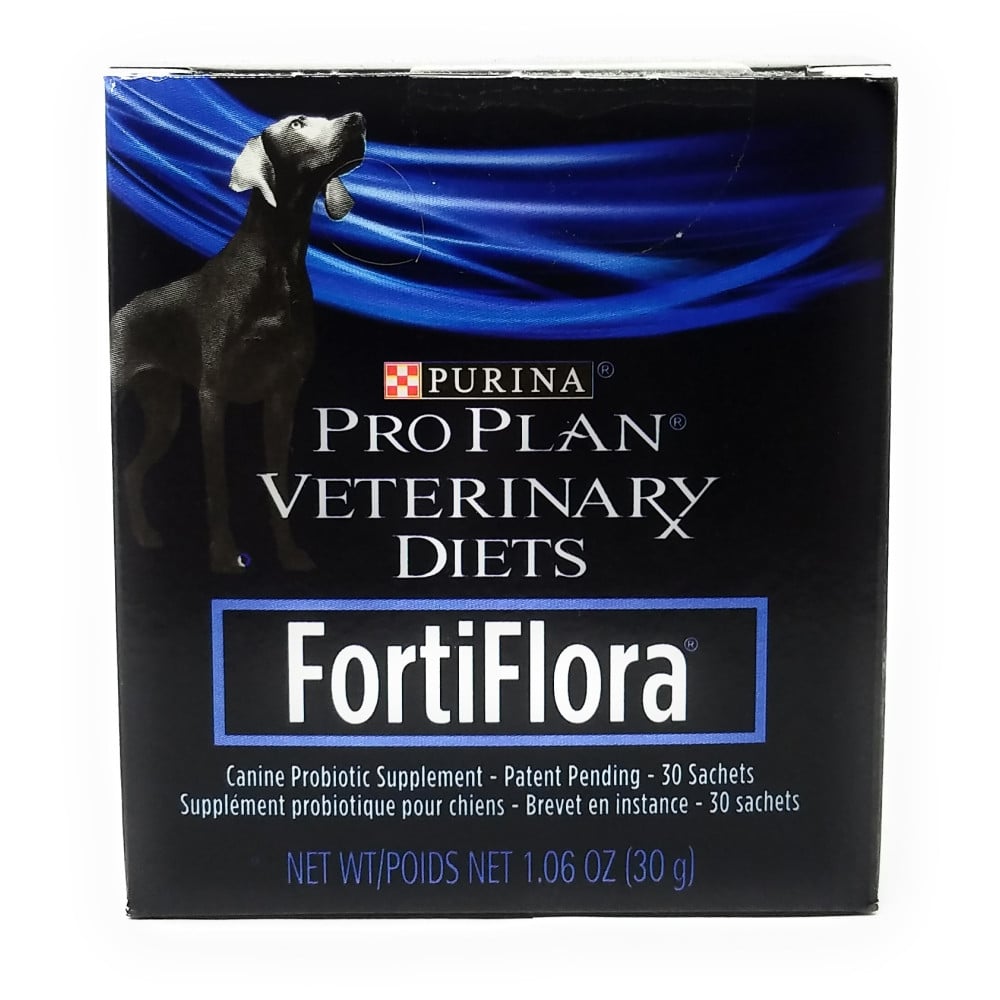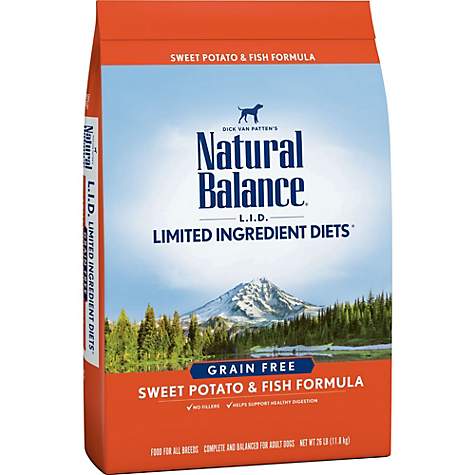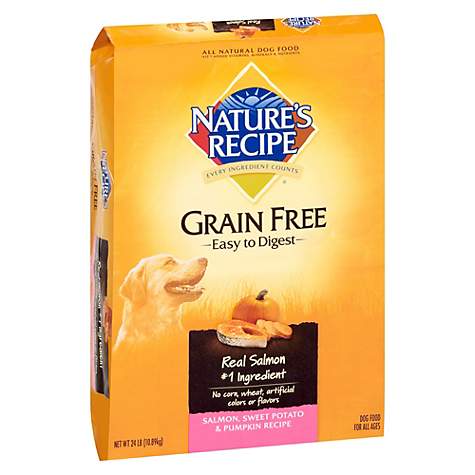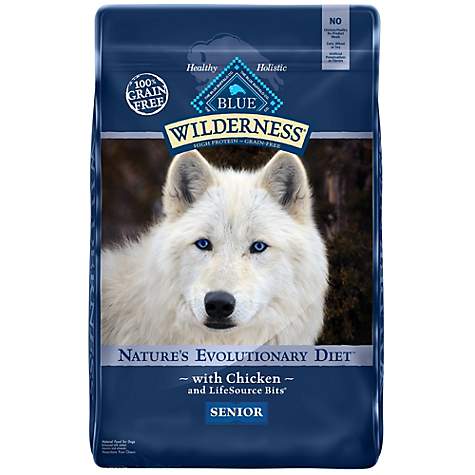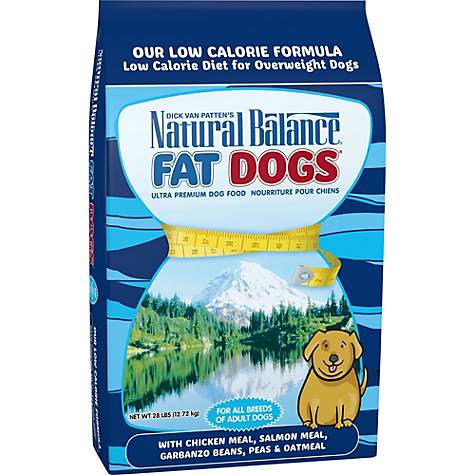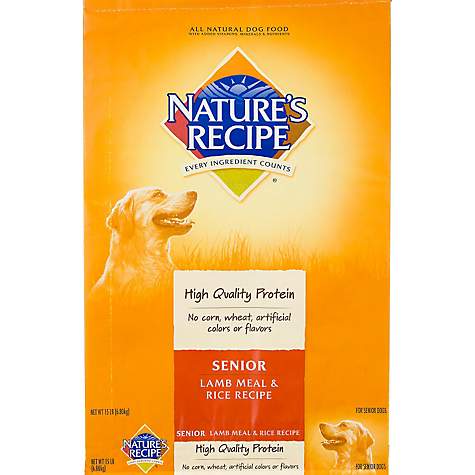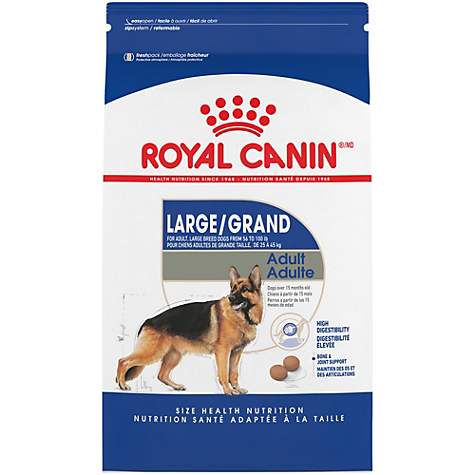Feeding your Malamute
This page should not be construed to be "expert" advice, it is our opinion only, backed by some interesting experiences.
I'm sure many will disagree vehemently (and I will no doubt hear about it LOL).
My personal feeling about feeding is go with whatever works for you and your dog. I am NOT a nutritionist nor have I felt the need to do an incredible amount of research into dog foods. Essentially, I look for dog food certified as having complete nutrition and uses high quality ingredients (meat being first on the list). In the U.S. that would be certified by AAFCO. The seal is on every bag they've tested so you can be assured of a basic level of quality. I feel they know a lot more about this than I do. I also leave it up to pet food companies that have the resources and expertise to test and research new and better foods - on the other hand, lately we are seeing the quality of the big suppliers - Purina, Science Diet, etc. taking a turn to terrible quality. I don't pretend to know more than they do. However, from a Malamute specific standpoint, there are a few things the typical Malamute owner needs to consider.
Food testing: There are two kinds of tests available if you want to sell a pet food. One is basically you submit the ingredients, and the FDA says yay or nay...they never see any kind of actual food. The better foods (we like Dr. Tim's who does this) submit samples which are fed to actual live dogs and rated. This is the route all foods should use, but they don't. You can find out what method your food used by doing a little sleuthing and checking the website dogfoodadvisor.com
Some people feed raw, all natural foods, some feed grocery store kibble, some feed leftovers - often it's a combination of two or more methods - there is a plus to any of these depending on the circumstances. We feed a premium, or quality food, with a few leftovers thrown in to keep it interesting for the dog and affordable for us. When we have a source, we'll add deer, moose, bear or boar meat when we can get it. The type of leftovers we use are meat and vegetables. Our Mals love most cooked vegetables. Some are definite"meat eaters" and turn their nose up at raw vegetables like tomatoes or broccoli. It's interesting that some Malamutes need to "learn" to eat vegetables (just like they learn to eat poop in the back yard - the "other" Malamute food group ;-). We've had a couple that until they saw the other dogs eating carrots, would not eat them. On the other hand, some vegetables are almost universally rejected - such as lettuce or mushrooms. I suppose this is because I've heard lettuce is difficult for dogs to digest and has little nutritional value for them. I haven't a problem with a dog getting people treats and leftovers if a reasonable amount (no more than 10% daily) - I feel a Malamute will never have a good coat when fed one brand of dry food, day in and day out, without any supplements (by supplements I mean either store-bought vitamins/supplements or healthy leftovers). I personally feel an occasional change of food brands is a good thing. You should NEVER feed your dog these items as these have components toxic to dogs.
We did have a recent scare with a food we'd been feeding for several years (4Health) which is why we switched to Dr. Tim's. It came on gradually and we would have proably thougt it was just a behavior problem - except that Superman, who'd never been sick a day in his life (he's 10 1/2) had a seizure out of the blue. Just the week earlier we'd taken Simone to the vet because she was insanely hyper...she was breaking out of crates, and was bouncing off the walls. LeeLoo was as well, but at least she was satisfied to sleep in one of the bedrooms - but confine her to a crate, she went beserk. And Jazzy and Mocha were 'huffing' and 'wheezing". After Superman's seizure, we started to try and put the pieces together - no heartworm meds yet, too early; no vaccines recently; our yard is thoroughly inspected; they hadn't gone ANYWHERE or been around any other dogs...so it came down to food. We took back the 4 bags we had and bought something else. Within a week, all symptoms disappeared. No more seizures, no more hyperness. So food IS important. I'm getting a real education I never needed before. We eventually settled on a premium food - there are several I would love to feed, but they are too expensive for someone with 9 dogs. I love Dr. Tim's (and he's our vet too)....no recalls, premium ingredients...and several others (some on this page).
There seems to be a few schools of thought on feeding - the natural crowd that feels everything must be raw, heavy on meat and like a dog might eat "in the wild". Another group feels premium or high quality kibble dog food (ie: Blue Buffalo, Orijen, Solid Gold, etc.) is best and needs no supplementation, a third group, usually vegetarian, tries to eliminate a large amount of the meat element by feeding vegetarian leaning foods with little or no meat, and of course the whatever is cheapest at the supermarket crowd (Old Roy, Purina) - and everything in between. I'm sure for certain dogs, any of these can be quite healthy and good. I feel, each dog, each breed - and lines within the breed, and each Malamute owner has to make his own choice. That said, here are a few things that have influenced the way we feed our dogs.
All Malamutes I've known LOVE fish of any kind. Not living in Alaska, our choices are limited, but we've found canned salmon, mackerel, tuna are a nice supplement when added to their daily kibble and the dog's love it. It is great for their coats and a healthy coat usually means a healthy dog. I tend to not give this EVERY day, only because I think the salt used in canning may be too much on an everyday basis. The dog food companies are finally getting on board, and offering several fish-based foods that were never an option before. It's great to have access to Alaskan salmon or other fish. I would love to feed seal, whale, fresh salmon - however, it's not available at the local grocery store so it means a special trip to a Pet supply store. Many good foods can be ordered directly from Petco and shipped reasonably.
One issue I think is not addressed by food manufacturers - some breeds, and I feel the Malamute is among them - cannot always digest milk products - a common ingredient in foods such as Science Diet or Innova. We've had a couple of dogs that could not tolerate these foods because of the dairy products in them. And if you think about it, it makes sense. There were no dairy cows in primitive Alaska - cows milk was not a part of the Inuit diet, and therefore would not have been in the dogs' diet either. We also had one pup that was sensitive to wheat and corn - he always had a soft stool until they switched to a Venison and Potatoes diet.
Carabou is probably a lot like Venison and tubers of all kinds survive cold Alaskan winters. I've heard some people say this is also true about beef, though I have never noticed this issue in our own dogs. I would be curious to know if lactose intolerance is found in certain herding breeds that would have had milk as a common staple in their overall diet. I would think natural selection long ago would have eliminated many dogs with a genetic propensity toward lactose intolerance in those societies. They actually have found a gene that controls lactose intolerance in humans...not sure if they've found one in dogs yet! Meanwhile, with the northern breeds, this genetic trait would still exist. A significant portion of the dog population might be lactose intolerant, but the condition would never be tested or never be a problem in a society where dairy cows don't exist. So fast forward to the housepet Malamute that drinks the toddler's leftover cereal or milk or is fed Science Diet - and gets a serious stomach ache, diarrhea or even intestinal infection from the inability to digest milk and grains. Perhaps we need to rethink these generic dog foods and make breed specific mixtures. Our Theodore, who will eat anything, is like our canary. If his poop is huge and he's eating grass, leaves and poop...it means the food is not all that good. When he gets a realy good food, his stools are firm and more compact - and he doesn't eat everything in sight (though he still loves his poop).
Another odd thing happened a few years ago. We'd been feeding a premium food for quite some time when Star developed a strange film on the surface of her eye. Not knowing what this might be (and fearing cataracts) we took her to the canine ophthalmologist who determined it consisted of FAT. Apparently her diet was TOO rich and according to the ophthalmologist was sloughing off in the lens of the eye. The solution? Give her CHEAP grocery store dog food until it goes away! Apparently this is quite common in the northern breeds, including Malamutes and Siberian Huskies that are not heavily worked - they are getting a diet too rich for their couch-potato lifestyle! We switched to plain old Purina Dog Chow for a few months - and lo and behold, after about 10 months the fatty deposit melted away. Generally though, since the original writing of this page Purina has gone 'to the dogs'...the quality has become terrible. I no longer recommend Purina or Pedigree any longer for anything, and have never liked Science Diet, Innova, or Diamond. If possible, hunt down a grain free version of whatever you can - this is due to a lot of problems with grains in foods (they are sprayed with glyphosite so they can be harvested sooner), then there are GMOs, and afloxin poisoning. I think if you can afford it - get the best grain-free food you can find at dogfoodadvisor.com where they break down thousands of foods and give you the details on quality.
We have never fed a true BARF diet (Biologically Appropriate Raw Food) and the only time I've come close is with puppies. When Mulan was very old and had problems tolerating kibble we went to a barf style diet of vegetables and deer meat. It was actually pretty easy to do for one dog, but would get insanely expensive for 9 or 10 which we had at the time. I have also added raw hamburger, or eggs to puppy food kibble. I have to admit, I am impressed with the size, health and quality of coats the puppies fed like this. However, I can't see myself taking the time to hunt down and figure out a truly balanced "BARF" diet for my dogs. When Mula got sick and bloated we basically fed her people food because she was bloating on the kibble...about 50% meat and 50% vegetables - I tried to use a large variety - more or less whatever we ate. She did great on this. Those that feed 'raw' generally feel it's worth it and oftimes become almost religious about it. There are some links below if you might be interested in this feeding method. There are also commercially prepared "barf" foods available in the side links. Since the original writing we've found a reliable source of deer meat and for a good part of the year now feed deer for their afternoon meal as a supplement to dog food kibble in the morning. It's made a huge difference in coats. I highly recommend if you can find a source, use it! Not only is it cheaper usually, dogs are carnivores and appreciate the meat and bone even for a few meals.
As for table scraps...people seem to be either for or against it. Personally, I don't think it hurts as long as the dog isn't overweight and is getting a balanced diet generally. After all, Malamutes were scavangers when they lived with the Inuit! Really, what is a couple of Doritos in the scheme of things. Hoover lives for Pizza crusts...should I deny this old guy his only real joy? I don't think so. Some things to avoid though - lettuce, chocolate, raisins, grapes and onions and MORE HERE. These are potentially toxic and aren't good for dogs. But mine love carrots, meat and gravy leftovers, veggies and bread....in fact, no loaf of bread is safe if Holly is nearby - leave it on the counter and you can bet the entire loaf of bread will be gone in a heartbeat - with only an empty wrapper on the floor (she doesn't eat the plastic though - you're Malamute mileage may vary!).
Considering a grain free food? It's come to our attention that when you switch to grain free and then switch BACK to a grain food it can CAUSE seizures. No one seems to know why, but it happened to us. We were using a typical kibble for years, then went grain free. Ran out of grain free, so fed some grain food we had gotten for different dogs. Within 24 hours Superman had a seizure and Theodore became very sick and refused to eat (Theodore! who will eat ANYTHING! We asked our vet about this and were told this is becoming more common and they really don't know why it happens. So if your dog is prone to seizures or is sensitive in any way, weigh your choices carefully.

A new development in the world of dog foods is that you can now make your own freeze-dried fresh foods for yourself and your dog. A one-time purchase of a dryer and you can dry meats, vegetables, anything to combine to make your own "kibble" but with fresh, human quality foods for your dog. For those inclined to feed a raw diet, it gives you greater storage options than ever before.
A few odds and ends we've learned with our Malamutes:
![]() If
you have a "moocher", give the smallest possible piece of Human Munchie (ie.
tiny piece of a Dorito) you can get away with. It's better for the dog's health, and you
They are just thrilled you're giving them something - size doesn't matter so make it tiny! Something this big { } is more than adequate (and they'll be more likely to learn to take it nicely!)
If
you have a "moocher", give the smallest possible piece of Human Munchie (ie.
tiny piece of a Dorito) you can get away with. It's better for the dog's health, and you
They are just thrilled you're giving them something - size doesn't matter so make it tiny! Something this big { } is more than adequate (and they'll be more likely to learn to take it nicely!)
![]() New research has shown it's not good to change your dog's food at all for the first year of life. If possible, continue feeding what the breeder fed your puppy or something similar. It's not a good idea to try different foods - even if there is a mild allergic reaction or mild temporary diahrrea. The reason behind this is sound. The more foods he is exposed to, the more likely he is to develop allergies because of his young age. This presents problems when allergies develop because it limits the number of NEW things you can use that he hasn't been exposed to...there is a reason you're seeing bison, salmon, potato, rice and other unusual foods in the stores. Don't expose your puppy to these until he's at least a year old unless the breeder has already been feeding something similar - you may need them later should he develop severe allergies. This is similar to the logic used with children in not giving them citrus too young as it can CAUSE them to become allergic.
New research has shown it's not good to change your dog's food at all for the first year of life. If possible, continue feeding what the breeder fed your puppy or something similar. It's not a good idea to try different foods - even if there is a mild allergic reaction or mild temporary diahrrea. The reason behind this is sound. The more foods he is exposed to, the more likely he is to develop allergies because of his young age. This presents problems when allergies develop because it limits the number of NEW things you can use that he hasn't been exposed to...there is a reason you're seeing bison, salmon, potato, rice and other unusual foods in the stores. Don't expose your puppy to these until he's at least a year old unless the breeder has already been feeding something similar - you may need them later should he develop severe allergies. This is similar to the logic used with children in not giving them citrus too young as it can CAUSE them to become allergic.
![]() DON'T feed what the bag says - go by how your dog's body feels. If you feel ribs and hip bones without much effort, he's too skinny - but if you don't feel any ribs or hip bones - he's too fat. If his fur seems to jog with him when he runs in a rolling motion, that's not coat folks, that's FAT. Keeping your dog lean is much better for his health (I know you've heard that before, but believe it). And if your dog starts to mysteriously gain wait without an increase in food or mooching, have his thyroid tested. It's a very common problem in Malamutes and if you allow it to get out of hand, you'll get diabetes, cushings, blindness and other problems that come with the excess weight.
DON'T feed what the bag says - go by how your dog's body feels. If you feel ribs and hip bones without much effort, he's too skinny - but if you don't feel any ribs or hip bones - he's too fat. If his fur seems to jog with him when he runs in a rolling motion, that's not coat folks, that's FAT. Keeping your dog lean is much better for his health (I know you've heard that before, but believe it). And if your dog starts to mysteriously gain wait without an increase in food or mooching, have his thyroid tested. It's a very common problem in Malamutes and if you allow it to get out of hand, you'll get diabetes, cushings, blindness and other problems that come with the excess weight.
![]() A
dog fed ONLY one kind of dry dog food may develop diarrhea if there is a sudden
change of brand or they get leftovers or a rich treat. Feeding occasional
leftovers, in my opinion, keeps a healthy dog's stomach from being too sensitive
to changes in diet. (Of course, if your dog has a medical problem, or is sensitive
to certain foods, you should always feed accordingly).
A
dog fed ONLY one kind of dry dog food may develop diarrhea if there is a sudden
change of brand or they get leftovers or a rich treat. Feeding occasional
leftovers, in my opinion, keeps a healthy dog's stomach from being too sensitive
to changes in diet. (Of course, if your dog has a medical problem, or is sensitive
to certain foods, you should always feed accordingly).
![]() Some
of the treats Malamutes LOVE most are pizza crust, carrots and ice cubes.
Go easy feeding pig ears as they are very rich and high in fat. We've heard
of at least two cases of the dogs becoming cranky and growly after eating
them - could it be the hormones fed to farm animals? We can only speculate..
Every so often you hear of some new "treat" - everything from pig snouts to tendons to turkey feet. Some are fine - my dogs love pig snouts - but I'm leery of turkey feet because of the cooked bones....Use common
Also, new treats can cause diahrrea in some dogs because they are richer than they are used to.
Some
of the treats Malamutes LOVE most are pizza crust, carrots and ice cubes.
Go easy feeding pig ears as they are very rich and high in fat. We've heard
of at least two cases of the dogs becoming cranky and growly after eating
them - could it be the hormones fed to farm animals? We can only speculate..
Every so often you hear of some new "treat" - everything from pig snouts to tendons to turkey feet. Some are fine - my dogs love pig snouts - but I'm leery of turkey feet because of the cooked bones....Use common
Also, new treats can cause diahrrea in some dogs because they are richer than they are used to.
![]() One of the best treats we've found are RAW beef, deer or other large bones. If you DO NOT COOK THEM they are digested properly and do not splinter causing internal injuries. The calcium and marrow are great for them, as is the raw meat left on them when butchered. I truly believe they get something from raw foods they cannot get from kibble in a bag. You can also feed RAW chicken - necks, legs, wings right from the bag frozen. Do NOT feed cooked bones of any kind - that includes that juicy looking steak bone left over from your BBQ...cooked bones can cause obstruction and perferation of the intestine because they are not digested properly. Cooked chicken bones are particularly dangerous.
One of the best treats we've found are RAW beef, deer or other large bones. If you DO NOT COOK THEM they are digested properly and do not splinter causing internal injuries. The calcium and marrow are great for them, as is the raw meat left on them when butchered. I truly believe they get something from raw foods they cannot get from kibble in a bag. You can also feed RAW chicken - necks, legs, wings right from the bag frozen. Do NOT feed cooked bones of any kind - that includes that juicy looking steak bone left over from your BBQ...cooked bones can cause obstruction and perferation of the intestine because they are not digested properly. Cooked chicken bones are particularly dangerous.
![]() Never
feed what the dog food bag says, feed to keep your dog at his ideal weight!
Typically, our 85-95 lb. males eat about 2 cups of a quality food, two times
a day. The females (about 65-75 lbs) eat about 1 cup of food, two times a
day. "Quality" is the key here - the better the food, the
less you need to feed. They occasionally get a taste of leftovers, some tuna
or meat on their dog food, or a dog cookie, but that is ALL. Not very much for dogs
their size, agreed. It's easy to get a Malamute overweight, especially if they are not very active.
Never
feed what the dog food bag says, feed to keep your dog at his ideal weight!
Typically, our 85-95 lb. males eat about 2 cups of a quality food, two times
a day. The females (about 65-75 lbs) eat about 1 cup of food, two times a
day. "Quality" is the key here - the better the food, the
less you need to feed. They occasionally get a taste of leftovers, some tuna
or meat on their dog food, or a dog cookie, but that is ALL. Not very much for dogs
their size, agreed. It's easy to get a Malamute overweight, especially if they are not very active.
![]() A
well metabolized food will mean less poop in the yard. If your dog has huge
stools, they are just not digesting a large part of their diet - so perhaps
you need to buy a higher quality food. Stools should be small, dense and firm.
One of the first indicators one of our dogs might be lactose intolerant was
diarrhea and gas. If your dog has excessive gas or consistently loose stools, try another brand of food
and see if that helps.
A
well metabolized food will mean less poop in the yard. If your dog has huge
stools, they are just not digesting a large part of their diet - so perhaps
you need to buy a higher quality food. Stools should be small, dense and firm.
One of the first indicators one of our dogs might be lactose intolerant was
diarrhea and gas. If your dog has excessive gas or consistently loose stools, try another brand of food
and see if that helps.
![]() Some
Malamutes are nibblers of their food, but most will eat until they could literally
explode. It's not uncommon to see a Malamute that should weigh 75 lbs weigh
in at 120! He is not a "giant" he's FAT. Generally, Malamutes do not do well as self-feeders (where food is down all
day and they eat when they feel like it), especially in a multiple dog household
Some
Malamutes are nibblers of their food, but most will eat until they could literally
explode. It's not uncommon to see a Malamute that should weigh 75 lbs weigh
in at 120! He is not a "giant" he's FAT. Generally, Malamutes do not do well as self-feeders (where food is down all
day and they eat when they feel like it), especially in a multiple dog household
![]() Feeding puppies is a little different with Malamutes. I feel a large breed puppy food is best - we use a high quality puppy food (one of these on th page) for the most part. If the Malamute puppy gains weight too quickly, it's OK to switch them to an adult food younger than 6 months. We've had our smaller mals switch at 3 and 4 months if they begin to gain too much weight. If you've gotten their feedings down to 2-3 a day, and they are still getting chubby - stop puppy food and feed a high quality adult food.
Feeding puppies is a little different with Malamutes. I feel a large breed puppy food is best - we use a high quality puppy food (one of these on th page) for the most part. If the Malamute puppy gains weight too quickly, it's OK to switch them to an adult food younger than 6 months. We've had our smaller mals switch at 3 and 4 months if they begin to gain too much weight. If you've gotten their feedings down to 2-3 a day, and they are still getting chubby - stop puppy food and feed a high quality adult food.
Missing Link
The Missing Link Plus Glucosamine Canine Formula Super Food Supplement (16 oz.; Granules; Powder) The Missing Link, the original all-in-one super food supplement, is now available with added glucosamine. The Missing Link targets the nutritional gap between what nature provides and what's available in commercial foods.Free of filler, preservatives, and artificial colorings or flavorings.Your animal will receive the most benefit from this formula within three to four weeks.
More information & Helpful links...
Dog Food Links
Best place to find out about a specific food! Dog Food Advisor















